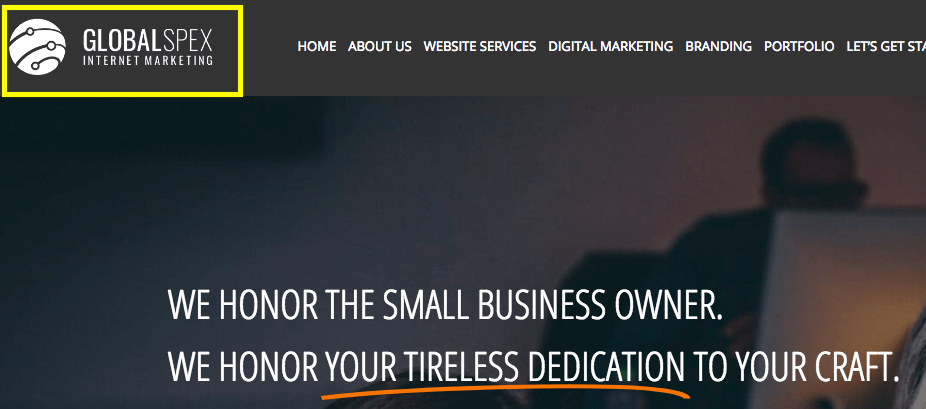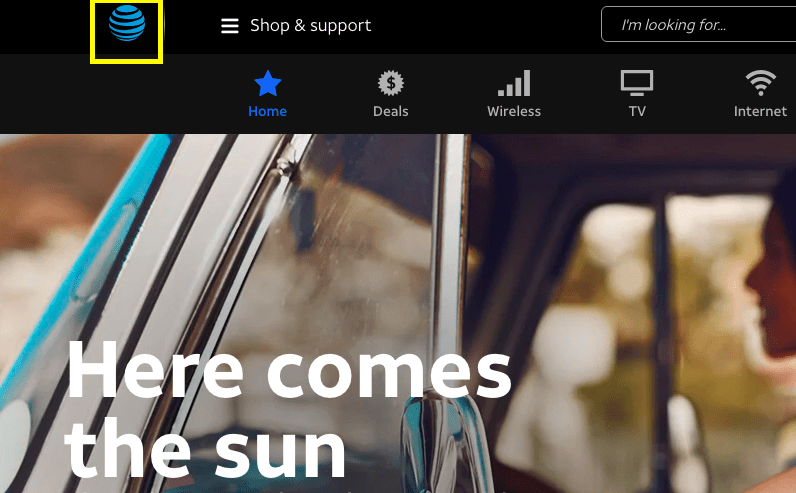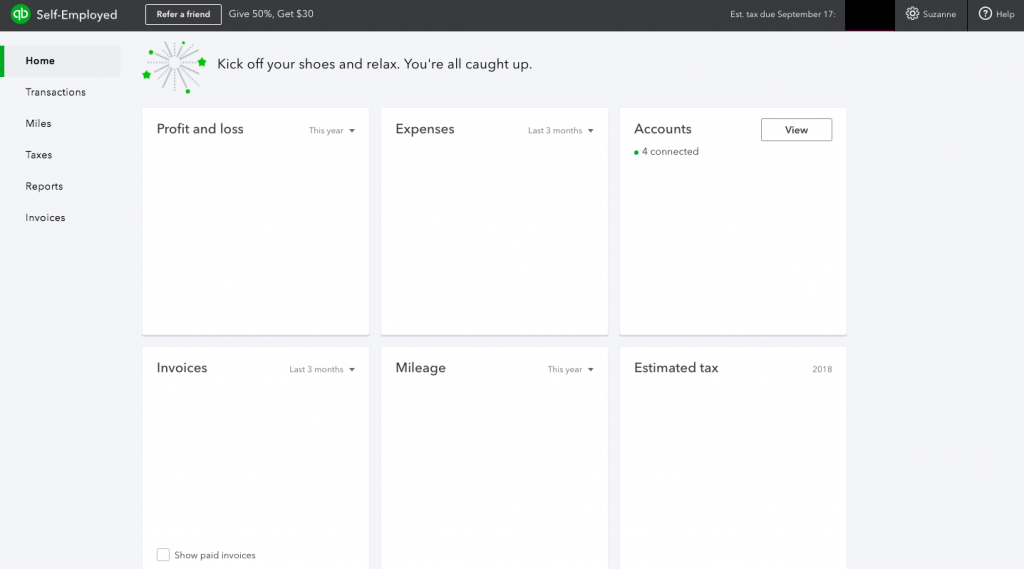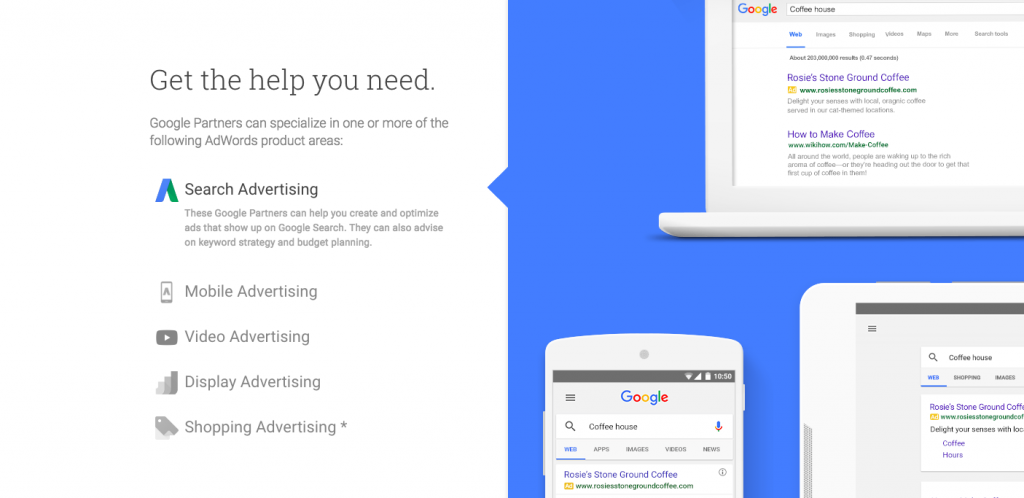Profit is not a dirty word. And, yet, when you’re in the business of consulting and working with an intuitive system like WordPress, guilt can seep in and make you feel bad about doing what you do, or charging what you charge. There is absolutely nothing wrong with building and sustaining profitability in WordPress consulting.
The fact of the matter is, you sell a highly valuable service that’s in high demand right now.
If you don’t charge what your consulting services are worth, you’ll soon find you won’t have the ability to offer that service to anyone. In order to stay in this game, your WordPress consulting business needs to be profitable. Not only that, you owe it to your clients and their businesses to be profitable, so you can continue to provide them (and others) with premium services.
The following guide will cover everything you need to know about building and sustaining profitability in WordPress consulting.
24 Tips for Building and Sustaining Profitability in WordPress Consulting
You’re here for one of a few reasons:
- You’re considering entering the world of WordPress consulting and want to know how feasible it is to make a profit.
- You’ve just started WordPress consulting and want tips on how to build and sustain profitability so you can keep doing this.
- You’re already a highly successful WordPress consultant, but want to brush up on other ways to generate profit in WordPress.
Regardless of your reasoning, profitability in WordPress consulting boils down to the same thing no matter what point you’re at in your career:
Genuinely enjoy what you do, be a master at it, and work smart.
Specifically? Well, I’ve broken this down into a number of practical tips:
1. Find the Right Niche
Notice how I didn’t say “pick a niche”. When you work as a WordPress consultant, it’s not realistic to be all things to everyone. Instead, you should identify a particular niche or speciality that interests you and that you know you’ll be good at. Also, it should be one you can make a real profit in.
I would suggest listening to Agency Mavericks's interview with Nate Wright where he talks about the importance of understanding your clients. If it’s not realistic to think that you could make a connection with restaurant owners or SaaS marketers, then it’s likely not going to be a good choice for you. A good pick for you might have something to do with your side passion or a previous industry that you have worked in. You will, therefore, “speak their language”.
2. Offer Something of Value
Does it make sense to offer consulting services to someone who is just blogging for fun and has no future plans to make revenue from it? Most definitely not. Someone like that would find no value in your services as a WordPress consultant – and not just because they would have very little money to pay you.
If you waste your time on irrelevant projects or with clients who don’t see your expertise and service as valuable, you’ll lessen your chances in making your business profitable.
3. Develop Strong Branding
Your WordPress consultancy might not ever reach the level of success or profitability of a monster like Automattic, but that doesn’t mean your branding shouldn’t be strong or unique. It’s like how they say you should dress for the job you want. Your business’s logo, colour palette, and overall style need to be “dressed” for the level of success you want.

Let’s look at an example like GlobalSpex. There’s nothing incredibly fancy about it and, yet, the emphasis on “global” in the name and icon gives this brand a strong image.
What’s also nice about this is that the icon is somewhat reminiscent of AT&T’s logo.

There’s no correlation between the two companies or the services offered. However, the subconscious connection their clients might make with a large and trustworthy brand like AT&T could be of some help in boosting the brand’s reputation and awareness.
4. Let Your Website Sell for You
The website you use for your consultancy should be representative of everything you advise your clients on. By demonstrating the same values and features on your WordPress site, you can appeal to the kinds of clients you want to work with. It will also serve as proof that you’re an expert that does more than just talk the talk; you also know how to walk the walk.
Beyond that, your WordPress site should clearly explain what you offer. Images should be relevant and relatable and the copy should be written in a clear language the client understands. If they walk away having no idea what a WordPress consultant does or why they need you, it’s time to revise.
5. Develop a Strong Marketing Strategy
Marketing and sales are two aspects of running a business that will never stop. Eventually, you will get to a point where you can outsource these tasks to a marketing manager and a team of salespeople. For now, though, you need to be smart about how you handle them.
To start: your website should be the lynchpin for your marketing and sales strategy. Prospective clients have questions on social media? Point them to your FAQs. You meet a business owner at a networking event who’s doesn’t like her website? Show her your portfolio from your phone. Customers want to upgrade their services? Send them to the customer support portal.
Also, make sure you’re reaching your audience in the right places. Don’t waste your time on social media platforms, forums, or at local events that won’t benefit you. The same goes for paid ad opportunities. If you are placing ads without much research or understanding of how to get in front of the right audience, then this is a waste of your money. First, invest in a course such as our Facebook Ads Accelerator or hire an expert.
Your time is valuable and if you want to keep costs low and profits high, you have to be wise in how you use it.
6. Wear Two Hats
Profitability in WordPress consulting hinges on your ability to be both a kickass WordPress professional and a savvy businessperson. Without that business acumen, you’re going to struggle to get ahead.
Speaking from personal experience, I know that it’s possible to run a successful WordPress business even if you’ve only worn the WordPress developer/designer/writer hat until now. However, if you’re not willing to wear the businessperson hat at least once a day, then profitability will be hard to come by.
My suggestion to you is to subscribe to freelancer blogs and WordPress podcasts or anything you can get your hands on that will give you tips on how to run a business. If you lose focus of things such as sales, finance management and partnerships then you will severely limit how far you can go.
7. Create High-Profit Margins through Pricing
You’re really lucky to be able to work in this field. Take, for instance, business owners in the restaurant industry. On average, those businesses only net themselves a profit of about three to five percent. This is because food and labour costs are insanely high and it’s just not feasible to charge too much to customers unless you’re running a fine dining establishment.
With WordPress consulting, it’s a totally different story. Aside from the cost of your website and a few pieces of software to run your business, there isn’t much coming out of pocket, right? Then, look at how much most WordPress consultants charge clients for their services. That seems like an insanely high markup, doesn’t it? Well, this goes back to my original point about feeling guilty.
Here’s the thing: clients are paying you for value, not for how much time you spend. If you can relieve them of the burden of managing a WordPress site or you can provide them with game-changing guidance that, in turn, makes them a huge profit, why sell yourself short and charge too little? To sustain profitability, don’t be afraid of charging what your services are actually worth.
Keep in mind what Matt Mullenweg told StudioPress about this:
“WordPress is a means to an end. As WordPress reaches a larger and larger number of people — because it does a really good job doing most of what people want — even the very niche users like, ‘I want to use WordPress to sell houses,’ become valuable niches. If you can help people do that and you generate a lot of value for them, they will be willing to pay you back some of that.”
8. Raise Your Rates Regularly
Even though you may feel indebted to that very first client who took a chance and signed up for your consulting services years ago, if you want to sustain this business, you must raise your rates. On everyone.
You’re going to be onboarding new clients all year long, so set a reminder for yourself – or, better yet, make it a task or event on your calendar that lets you know when to adjust rates across the board.
9. Ensure You Get Paid
Any time that you take on a new project, you need to let the client know that you require a deposit prior to even starting the work. It’ll keep your revenue stream at least somewhat intact in case that a client flakes out or disappears. So be clear about your payment structure and be sure to write it into your contract.
I tell my clients that I require 50% up front, 20% on the prototype, 20% on delivery and the final 10% when it goes live. Check out this blog where Simon Kelly delves into this topic more deeply.
10. Create Recurring Revenue Opportunities
In an interview that The Independent did with photographer David Bailey, he offered these words of wisdom:
“To get rich, you have to be making money while you're asleep.”
He’s right. You can toil away every day: finding new clients, consulting, maintaining client websites, and managing your business. You will eventually get to a point where that’s no longer sustainable. In order to grow and to make more money, you need to give up some of those things. Sure, you could do that by hiring a team to assist you. But how about creating a leveraged revenue stream, too?
One of the best ways to do this is to set up your clients on “care plans”. We talk a lot about the importance of this at Agency Mavericks. So here is something we prepared earlier on this topic!
Some other ways to build recurring revenue are:
- Build a plugin
- Build a theme
- Write an ebook
- Monetise your site
- Film video tutorials
- And more
Take your strength and your expertise, and put it into creating a one-time creative endeavour. Then, release it into the world and let it sell (without much effort from you). Not only will this boost your profitability, but it’ll save you from feast-or-famine. Here is a good listen from the Agency Mavericks podcast, where Brad Morrison from Go WP talks about how to create recurring revenue. Or check out these awesome tips from Gin.
11. Add Pricing Plans to Your Site
There’s no need to be squeamish about publishing your rates to your website. If you’re offering a competitive and fair rate, and you have proof that clients are seeing results, there’s absolutely no reason to hide it.
Be sure to include all of the services you offer. As a consultant, that might include WordPress care plans, plugins you’ve developed, or ad hoc design services. Whatever it is you want to offer, have a place for it on your pricing page, so prospective clients can view the full “menu” of services at once. This is also a great way to passively upsell and cross-sell your services.
If you missed this tutorial on how to add pricing plan tables to your website, be sure to watch it now:
12. Create a Contract
Although we live in a world where digital communications rule the roost, you still have to worry about clients reneging on originally agreed-upon terms, failing to pay for work, or providing feedback contradictive of the original scope. To protect your profit on each project, use a professional and legally binding contract. Here's one we prepared for you earlier! Your take and tweak Proposal Template with Mutual Agreement included.
13. Be Frugal
This isn’t the most exciting tip or even one that will be well-received, but, yes, you do need to be a little cheap. At least to start.
Personally and professionally, when it comes time to pull out that credit card, ask yourself: is this something I really need? If not, add it to a wishlist and save it for the next holiday or as a reward when your business hits its next milestone.
If you want to get profitability up, you need to keep those profit margins as wide as possible and getting into the habit of being frugal is a good way to do that.
14. Track Finances with Software
I recently had a business owner friend ask me how to calculate his taxes. I’m not going to lie, I was a bit shocked. For one, I couldn’t believe he had gone an entire year without researching any of these critical tips for running a business and remaining fiscally responsible. And two, I don’t know why he hadn’t invested in accounting software yet. QuickBooks was one of the first tools I paid for my business.

There are a number of benefits to using accounting software to track finances:
- You can connect all of your professional (and even personal) spending accounts to it.
- The software automates the categorization of recurring costs and revenue (for better organisation as well as tax preparation).
- It reminds you to look at your income and expenses regularly.
- It also reminds you to account for expenses you might not have thought about.
- Reports help you plan for any predictable lulls or surges in business ahead of time.
- Some accounting software merges with tax software to simplify the amount of work you do come tax time.
- Some also allow you to issue invoices.
I would say that if you’re not good with numbers or you dread having to dig into your finances, automating a good majority of those tasks with software is a good choice.
15. Automate Invoicing
Invoice management is another task that can be quite tedious.
For some of you, automation of invoicing won’t be an option as you offer hourly or per-project services. In that case, find other ways to reduce the work you have to do. If you can save all pertinent details in invoice templates for each client, it’ll simply be a matter of recording that timeframe’s costs before sending it out.
For the rest of you who offer a recurring service like selling WordPress care plans, set those invoices to automatically go out. Conversely, you could add a payment gateway to your website with something like PayPal. You can then remind clients to submit their payments by email or text a few days before the deadline.
16. Automate Reporting
While it would be nice to put your head down and focus on your work day in and day out, you still need to stop and get a sense for what all that hard work is doing for you and your clients. However, try not to poke around in various analytics tools. Instead, set up reports and have them automatically delivered to your inbox every week. Then, schedule time to review them.
These reports should cover all relevant matters, including:
- Your business’s profit and loss
- Invoice status (to follow up on late payments)
- Employee productivity (when applicable)
- Project statuses (depending on what services you offer)
Basically, if someone were to ask about the health of your business or about where your clients’ WordPress sites currently stand, you should already have an answer to it. These automated reports will be your Clif’s Notes.
17. Work Only for the Best
If you’re not picky about the clients you work with, it’s time to change that. High-paying clients are obviously the first place to start, though you also need to make sure they’re a good fit for your style and goals. This means they respect the work you do, they don’t quibble over price, and they have invested in you as a partner.
This also means you need to stop accepting bad clients. If a job puts your reputation or the prosperity of your business at risk, just say “no”. You have no time to waste.
Joost de Valk (the person behind the Yoast plugin) has a similar approach to his business:
“My business is really ‘me’. I do what I like doing: blogging, reviewing sites, developing plugins for myself or for companies, optimizing sites. I just do what I like and what people approach me with. If I don’t like a project, or don’t believe in it, I turn it down.”
18. Have a Client Retention Plan
If you’ve noticed a high turnover rate in your client base and it’s cutting into your profits (since it costs money to look for replacement revenue), create a client retention plan. The more trust there is between you and your clients, and the greater the results you can produce for them, the longer and more prosperous your relationships will be.
19. Leverage Social Proof
One of the most effective forms of marketing we have today is social proof. It’s the theory that consumers are more likely to buy something if they have confirmation from other consumers that it’s a worthy purchase. Obviously, it would be great if your WordPress site and impressive portfolio were enough to sell them… but it’s not. Prospective clients need to hear it from others before they can believe what you say.

Agency Mavericks’s testimonial page is the perfect example of this. Dozens of clients have left video and written testimonials on behalf of Agency Mavericks. And each of them speaks in terms that other clients will understand. There’s no industry jargon. There’s no big sales pitch. It’s just a lot of practical insight into what the solution does.
Start reaching out to customers new and old and ask them for a testimonial. For the clients that say, “Well, I’m so happy with your service, but I don’t have time to write anything”, do it for them. You’ve worked with them for months or years now, so you know what they’ve gained from working with you. Offer to write the testimonial, send it to them for customisation or approval, and then publish it to your site!
20. Create Repeatable Systems
Pretty much any part of the WordPress consulting process as well as your business processes offer the opportunity to create repeatable systems (and document them). Templates are an important part of this as they streamline the repetitive tasks that would otherwise cause costs to rise.
Colleen Gratzer of Gratzer Graphics LLC told Agency Mavericks that templates improved her own workflow:
“Frustrated from spending days putting together every proposal, I decided to work with a business coach to rework my proposal template. I still didn't win any–that is, until using Agency Mavericks's proposal template. It has not only saved time but also helped to position my business better (leading to higher profitability).”
By removing the unnecessary time wasters, you can give your profit even more room to grow.
21. Invest in High-Quality Tools
Working in WordPress, you understand the benefits of using high-quality tools. Even when access to them comes at a price, the tradeoff of efficiency, accuracy, and automation are worth it.
I would just stress not to go overboard. It’s easy to think, “Oooh! This software will do X, Y, and Z!”, and then realise six months later you never needed to do X or Z. When your business is new or even when you’re in the process of scaling, be careful about these purchases. Start with good quality and basic tools. Then, once you’re earning steady revenue and have high-profit margins to play with, make those upgrades.
I think your best bet would be to start with these indispensable tools (many of which are free):
- A task management system such as Asana
- A client management system such as Trello
- Cloud storage such as Google Drive
- Online meeting software such as Zoom
- Email marketing software such as MailChimp
- Accounting software such as QuickBooks
- Contract management software such as AND CO
- A password management tool such as LastPass
22. Organise Your Workspace
Before I started my own business, I read a lot of blogs about how to remain productive even when you work from home. One of the tips I found most valuable was to create a dedicated workspace. I think it’s similar to the effect that getting dressed for work has on you: it puts you in the mindset that you are now at your job. This is when and where you put your game face on and all distractions need to be left at the door.
But I want to push this just a little bit further. I’d like to suggest that you organise and optimise your workspace for focus, creativity, and efficiency. This includes both your digital workspace as well as the physical one.
If you’re looking for inspiration on how to do this, check out Adham Dannaway’s office:

It’s definitely reflective of the quality of work he’s known for.
23. Keep Improving
Want to be able to charge higher rates, add more expensive plans to your pricing structure, and open completely new revenue paths? Then you’re going to have to grow your capabilities and knowledge.
One way to do this is to get certified. There are different ways you could approach this. For instance, you could become a certified Google Partner.

In that case, not only would you be your clients’ trusted WordPress expert, but you’d also be able to handle all their search marketing needs as well.
You could also take classes online or at a local school to enhance your skills. While you might not need training in WordPress, you might want to brush up on your business and communication skills. You should seize any chance you have to improve your relationship with clients and the quality of work you do for them.
Agency Mavericks’s program is the perfect example of something you can do to keep moving yourself and your business towards improvement. As Katrina Wagner of Graphic Beans explained:
“After I had implemented a few of the strategies I learned from Troy, my work week got much more manageable; I started making much more profit, and I could spend more time on each client’s project because I wasn’t juggling so many small tasks. Each time I learn something new in a webinar, from the online materials or by asking questions in the forum, my business gets stronger, and I have a better work/life balance.”
24. Don’t Overdo It
Business burnout. It’s either a sign that you’ve taken on way too much for too long… or that something’s not right within your business.
So, before you even get to that point of burnout, take better care of yourself.
- Say “no” to bad clients.
- Say “no” to jobs that invade your personal time.
- Schedule vacations.
- Create firm boundaries between your personal and professional lives.
- Create firm boundaries between you and your clients.
- Disconnect from work when you’re not there.
- Start outsourcing and delegating as your business prepares to scale.
- Make time for working out, eating right, and spending time with loved ones.
Take control over your life, so you can take control of your profits.
Wrap-Up
At the end of the day, your primary focus needs to be on your clients’ success. If their business is successful, you’ll find that your ability to sustain profitability in WordPress consulting will naturally come along with it. This means you need to be in a position where you know what you’re doing, you’re fully trusted to do what you do, and you’re being paid well for it.
Finally, remember why you're doing all of this. Ask yourself – “What does success look like for me”? and “What's it all for?” Is it to have more time with family and friends? Is it to travel? Impact the world? It's really up to you. But you need to be profitable to continue and you are doing the world a disservice if you're not profitable.
If you need some clarity on what next steps to take in your business, we're here for you! Click here to arrange a time to speak to one of our awesome team members.






